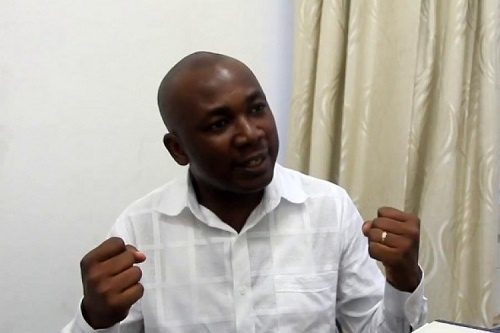Economist and professor of finance at the University of Ghana, Prof Godfred Bokpin, has asserted that the cedi can only be stabilised temporarily from further depreciation in its performance against major foreign currencies but continue slipping as has been the trajectory for decades.
He attributes this trend to the lack of a robust macroeconomic policy support for the cedi.
Speaking on Joy FM's Super Morning Show on Monday, May 13, Prof Bokpin explained that the cedi has persistently suffered depreciation since its introduction in July 1965.
He anticipates intermittent periods of relative stability but underscores the likelihood of continued depreciation, even with optimal economic measures in place.
“If we do everything right we will still expect that the cedi will depreciate by a certain margin given the relative strength of the economy.
“It's a shame that we haven't been able to provide the cedi with the necessary support through sound macroeconomics policy making, including responsible fiscal management and prudent monetary policy.
“As a result, we've denied the cedi some basic rights and then expect it to perform magic, when in reality, the cedi's behaviour is a reflection of weak underlying fundamentals”explained.
In referring to the Vice President, Dr Mahamudu Bawumia's popular phrase about the cedi's depreciation, Prof Bokpin argued that the exchange rate will expose the currency as long as the fundamentals of the economy remain weak.
Prof Bokpin mentioned that in 1964, Ghana had inflation of less than 1%. At that time, Ghana did not have its national currency and used the British West African pound, limiting its monetary control.
He said even after gaining independence, printing currency remained out of reach, until in July 1965 when the cedi was introduced. However, inflation has been a continuous challenge since then.
As of today, Monday, May 13, one US dollar averages GH¢14.5 according to Joy Business.
Analysts are envisaging a continuous weakening trajectory of the local currency as foreign exchange demand-supply disparity remains substantial.
They, however, anticipate improved liquidity conditions towards the end of quarter two of 2024 after the International Monetary Fund (IMF) board approves the second review of Ghana’s programme. This will lead to a tranche disbursement of US$360 million under the IMF programme.
Latest Stories
-
NSB Scandal: Witness reveals how ‘Ghana Must Go’ bags of cash moved from bank to accused
5 minutes -
Insuring the 24-Hour Economy: Policy imperatives and critical enablers
5 minutes -
The Mahama government steers Ghana toward economic stability in just six months
10 minutes -
Minority dismisses Ato Forson’s claim on road project funds as false
20 minutes -
Minority accuses government of bias in road project allocations
27 minutes -
Bawku conflict: Curfews ineffective—Prof. Aning laments
30 minutes -
Minority accuses government of repackaging old road projects in Mid-Year Budget
36 minutes -
Bawku conflict can be resolved in three sittings – Austin Gamey
40 minutes -
Government to announce new producer price for cocoa before August 7, 2025
43 minutes -
Late-night blaze destroys vehicle at University of Ghana sports stadium
59 minutes -
Dep. Min. must do his homework over ‘shocking’ coding answer – Vickie Bright
1 hour -
Cameroon opposition leader banned from challenging world’s oldest president
1 hour -
Over 40 killed in DR Congo attack linked to Islamic State
1 hour -
Bawku mediation risks collapse if parties reject process – Austin Gamey warns
1 hour -
Five killed in Thailand market mass shooting
1 hour

